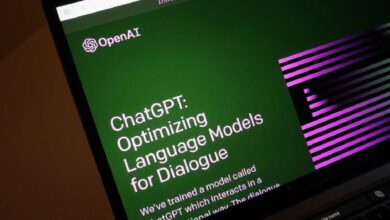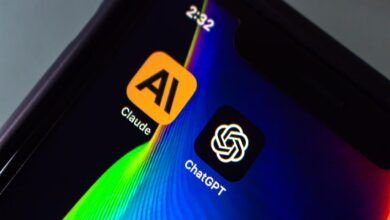OpenAI Sued by Authors for Alleged Unlawful ‘Ingestion’ of Books

The maker of the artificial intelligence tool ChatGPT, OpenAI, is sued by two writers who say that by “training” its model on books without their consent, the corporation violated copyright rules.
The complaint for a class action lawsuit was submitted to a federal court in San Francisco last week by authors Mona Awad and Paul Tremblay. Some of Mona Awad’s works include Bunny and 13 Ways of Looking at a Fat Girl. Paul Tremblay is the author of The Cabin at the End of the World.
ChatGPT gives users the ability to send in queries and commands to a chatbot, which then responds with text that is formatted in a manner that is analogous to human language patterns. The model that is used to power ChatGPT has been trained using data that is freely accessible on the internet.
According to the lawsuit, Awad and Tremblay think that their copyrighted publications were illegally “ingested” and “used to train” ChatGPT because the chatbot provided “very accurate summaries” of the novels. This belief is based on the fact that ChatGPT generated “very accurate summaries” of the books. The case contains a number of exhibits, some of which are sample summaries.
According to Andres Guadamuz, a reader in intellectual property law at the University of Sussex, this is the first case against ChatGPT that concerns copyright. The lawsuit was brought against ChatGPT. According to him, the case will investigate the murky “borders of the legality” of various operations that take place in the realm of generative AI.
According to an email sent to the Guardian by the writers’ attorneys, Joseph Saveri and Matthew Butterick, books have a tendency to contain “high-quality, well-edited, long-form prose,” making them a perfect medium for training big language models.
The complaint alleges that OpenAI “unfairly” profits from “stolen writing and ideas” and requests monetary damages on behalf of all U.S.-based authors whose works were allegedly used to train ChatGPT. Authors of copyrighted works enjoy “extensive legal protection,” according to Saveri and Butterick. Nevertheless, they face companies like OpenAI that act as if these laws do not apply to them.
Even if the assertion that ChatGPT was trained on copyrighted material turns out to be true, it may be difficult to prove that writers have incurred specific financial losses as a direct result of ChatGPT being trained on copyrighted material. According to Guadamuz, ChatGPT could perform “exactly the same” if it had not swallowed the books. This is because it is educated on a variety of information gleaned from the internet, which includes, for instance, internet users discussing novels.
According to Lilian Edwards, a professor of law, innovation, and society at Newcastle University, “the likely outcome of this case will depend on whether courts view the use of copyright material in this way as ‘fair use’ or as simple unauthorized copying.” Both Edwards and Guadamuz stress that a similar action made in the UK would not be judged in the same way since the UK does not have a “fair use” defense in the same way that the US does.
UK government’s efforts to promote an exception to copyright, specifically aimed at facilitating free use of copyright material for text and data mining, have hit a roadblock. According to Edwards, a prominent figure in the field, this reform was met with strong opposition from authors, publishers, and the music industry, who expressed their deep dismay at the proposed changes.
ChatGPT, the revolutionary AI technology, made its debut in November 2022. Ever since its launch, the publishing industry has been abuzz with fervent discussions centered around safeguarding authors from the potential perils of this cutting-edge AI innovation. In a recent development, The Society of Authors (SoA) has released a comprehensive list of “practical steps for members” aimed at ensuring the safety and protection of both themselves and their valuable work.
In a recent interview with the esteemed trade magazine, the Bookseller, Nicola Solomon, the chief executive of the Society of Authors (SoA), expressed her satisfaction with the authors who have taken legal action against OpenAI. Solomon emphasized that the SoA has harbored deep concerns regarding the extensive replication of authors’ work for the purpose of training expansive language models.
The lawyers also mentioned that it is “ironic” because tools for “so-called ‘artificial intelligence'” rely on data made by people and that this is something that is considered “ironic.” “The systems they use are completely reliant on the inventiveness of humans. If they put the human creators out of business, they will soon be out of business themselves.
Check Out: Google’s New Privacy Policy: Utilizing Public Data for AI Training
PTA Taxes Portal
Find PTA Taxes on All Phones on a Single Page using the PhoneWorld PTA Taxes Portal
Explore NowFollow us on Google News!





